 |
| The United Nations reached an agreement on the sustainable use of marine biodiversity. (Source: Vietnam Mission to the United Nations) |
Why is this document called the “Treaty on the High Seas”, Mr. Deputy Minister?
The official name of this document is the International Legal Instrument on Biological Diversity in Areas Beyond National Jurisdiction. It is the third document under the 1982 United Nations Convention on the Law of the Sea (UNCLOS), following the Agreement on the Implementation of Part XI of the Convention (1994) and the Agreement on Migratory Fish Stocks (1995).
The sea area beyond national jurisdiction, in other words, is the vast ocean area beyond the exclusive economic zone and the seabed beyond the continental shelf of countries. In this international sea area, according to the 1982 Convention on the Law of the Sea, countries have the right to freedom of fishing, but the minerals under the seabed are considered the common heritage of mankind, and mining must be carried out according to a licensing mechanism and benefit sharing of all countries.
However, the 1982 Convention on the Law of the Sea has not yet regulated a new resource, which is the marine genetic resources of species that only live in deep and offshore waters. Currently, almost only developed countries and private companies possessing leading marine and biotechnology technologies, with abundant financial resources, are able to collect marine genetic resources and develop profitable applications, while there is no international document stipulating their obligations to share benefits as well as to conserve the sea.
The international legal instrument on biodiversity in areas beyond national jurisdiction regulates the exploitation, conservation and sharing of benefits from marine genetic resources in a vast ocean area, in a field with great potential. This document deserves the name “Treaty on the High Seas”.
| Vietnam participated in the drafting of the Document with the desire to “become a strong, sustainably developed, prosperous, safe maritime nation… proactively and responsibly participating in solving international and regional issues related to the sea and ocean”. |
The moment the countries reached an agreement, the conference chairwoman, Ms. Rena Lee, burst into tears when announcing "the ship has reached the shore". Is it true that this historic achievement has not been an easy journey to achieve, Mr. Deputy Minister?
At the 2012 UN Conference on Sustainable Development, countries committed to “addressing with urgency […] the issue of the conservation and sustainable use of biological diversity beyond national jurisdiction, including the decision to develop an international instrument within the framework of the UN Convention on the Law of the Sea”. In 2017, after two years of work by the Preparatory Committee, the UN General Assembly passed a resolution convening an Intergovernmental Conference to develop the document, the first session of which took place in September 2018, and has so far gone through five sessions.
The focus of negotiations over the years has been on differences between views on exploitation and conservation, on encouraging research, exploitation and capacity building, on technology transfer, and on equitable benefit sharing, with developed and developing countries often expressing completely opposite interests and views.
The negotiations attracted the participation of most UN member states, including landlocked countries or countries that are not members of the 1982 Convention on the Law of the Sea. The meetings always took place with high intensity and complicated developments, especially the recent Fifth Session (extended) which ended with 36 hours of non-stop work.
As a maritime nation, “unifying the ideology and awareness of the position, role and special importance of the sea in the cause of national construction and protection” - as stated in the Strategy for sustainable development of Vietnam's marine economy to 2030, with a vision to 2045 - Vietnam actively participated in this negotiation process from the beginning.
Implementing the Prime Minister's direction, the Ministry of Foreign Affairs chaired the establishment of an interdisciplinary delegation to coordinate with the Vietnamese Mission to the UN to actively attend all meetings. During the negotiation process, in addition to coordinating positions and promoting the common interests of developing countries, we also paid special attention and contributed opinions on groups of issues such as Capacity Building and Technology Transfer, Marine Protected Areas, and Cross-cutting Issues.
As a result of the Conference, at the recent (extended) Fifth Session, the countries agreed on a package of agreements on the following contents: (i) Sharing benefits from marine genetic resources, (ii) measures for zoning marine conservation areas, (iii) environmental impact assessment, (iv) capacity building and technology transfer, (v) establishment and operation of agencies and institutions to implement documents, resolve disputes, financial mechanisms, etc.
Could you please tell us the significance of this document for the international community in general and Vietnam in particular?
The success of the Negotiation Session demonstrates the political determination of countries in achieving a document aimed at conserving marine biodiversity in the high seas. This is a historic milestone in the international community's efforts to protect the marine environment, in the context of implementing the 2030 Agenda, especially Sustainable Development Goal 14 (SDG 14) on the conservation and sustainable use of the seas and marine resources. The draft document is an important step in the implementation of the 1982 UN Convention on the Law of the Sea - the legal framework for all activities in the seas and oceans.
 |
| The Vietnamese interdisciplinary delegation led by Ambassador Dang Hoang Giang, Head of the Vietnamese Mission to the United Nations, actively participated and made substantial contributions to the negotiation process at the Conference. (Source: Vietnamese Mission to the United Nations) |
Vietnam participated in drafting the document with the desire to “become a strong, sustainably developed, prosperous, safe maritime nation… proactively and responsibly participating in solving international and regional issues related to the sea and ocean”.
All countries also come to the Conference with their own wishes. It is difficult for any multilateral document to fully satisfy the wishes of all countries or of any single country, however, the content of the Document basically brings more benefits to developing countries.
In fact, there has never been an agreement that regulates in detail the conservation, sustainable use of marine biodiversity and the sharing of related benefits. With the content of the agreement package just reached, this document opens up the possibility for developing countries, including Vietnam, to take advantage of capacity building measures and technology transfer as well as financial resources of the benefit-sharing fund from marine genetic resources beyond national jurisdiction to "access and make the most of advanced scientific and technological achievements", "train and develop marine human resources, form a team of highly qualified and competent marine science and technology staff", thereby "sustainably developing the marine economy on the basis of green growth, biodiversity conservation", as the goals set out in the Strategy for Sustainable Development of Vietnam's Marine Economy to 2030, with a vision to 2045.
| It is difficult for any multilateral document to fully satisfy the wishes of all countries or any one country, but the content of the Document basically benefits developing countries. |
So, what is the next work of this Session, Deputy Minister?
It is expected that the Intergovernmental Conference will report to the General Assembly on the results of the recent Fifth (extended) Session on the establishment of a Working Group on the technical legal completion of the document, its translation into the languages of the United Nations, and the convening of an additional Session called the Fifth (continued) Session to adopt the draft document in the six official languages of the United Nations. The preparation work usually takes about three months, so around the end of May, early June this year, countries will have the opportunity to officially express their opinions on the adoption of the document.
The negotiation process of the international legal instrument on biodiversity in marine areas beyond national jurisdiction is nearing completion, moving to the stage of opening for signature, ratification, approval, accession and implementation.
However, many other negotiation processes are opening up for important multilateral international legal documents dealing with global issues, such as the Convention on Plastic Waste, the Agreement on Epidemics, etc. These documents belong to different fields of expertise but all have in common: they will establish global "rules of the game"; touch on the immediate interests of countries; have profound international legal and political nature; and require our active and proactive participation.
With experience from the process of negotiating international legal documents on biodiversity in marine areas beyond national jurisdiction, we believe that the active role of the leading ministries and branches, as well as the coordination of the Ministry of Foreign Affairs on international law, international politics and diplomacy are key to protecting and promoting the country's interests in the process of negotiating international legal documents in the coming time; implementing the policy of raising the level of multilateral diplomacy according to Directive No. 25-CT/TW dated August 8, 2018 of the Secretariat.
 | Integrity of fundamental role and universal values in ocean and sea governance On the occasion of the 40th anniversary of the 1982 United Nations Convention on the Law of the Sea, The World and Vietnam Newspaper respectfully... |
 | Vietnam, representing more than 40 countries, affirmed that the 1982 Convention on the Law of the Sea has historical significance for humanity. Ambassador Dang Hoang Giang emphasized that UNCLOS has historical significance for all of humanity, marking an important milestone ... |
 | UNCLOS 1982: Vietnam's contribution to maritime delimitation Loyal to the 1982 UNCLOS Convention, Vietnam is a successful country in Southeast Asia, resolving maritime disputes... |
 | Border and territorial work: Resolutely and persistently protecting the "fence" of the Fatherland On the occasion of the beginning of Spring 2023, Permanent Deputy Minister of Foreign Affairs, Chairman of the National Border Committee Nguyen Minh Vu answered ... |
 | United Nations reaches historic agreement on conservation and sustainable use of marine biodiversity The Vietnamese interdisciplinary delegation led by Ambassador Dang Hoang Giang, Head of the Vietnamese Mission to the United Nations, attended ... |
Source




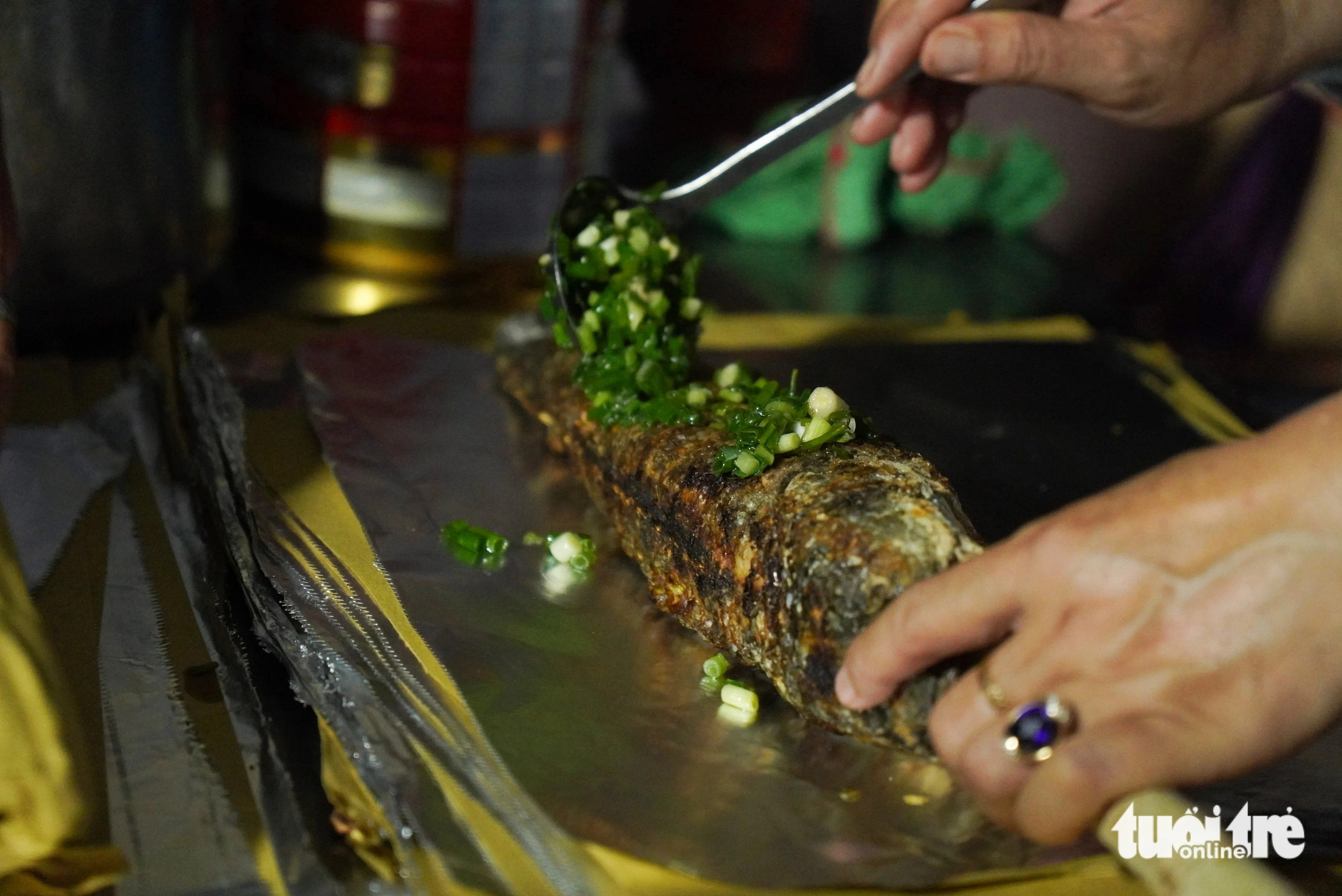

























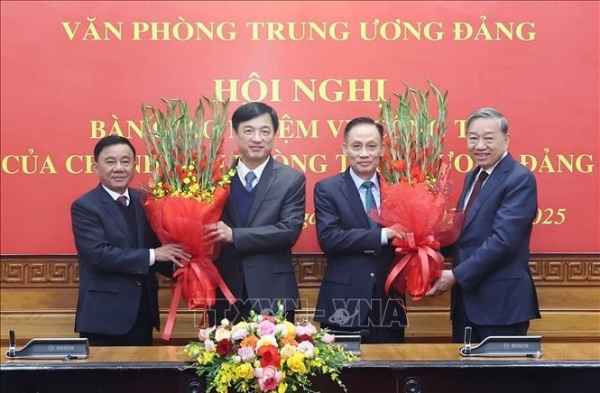


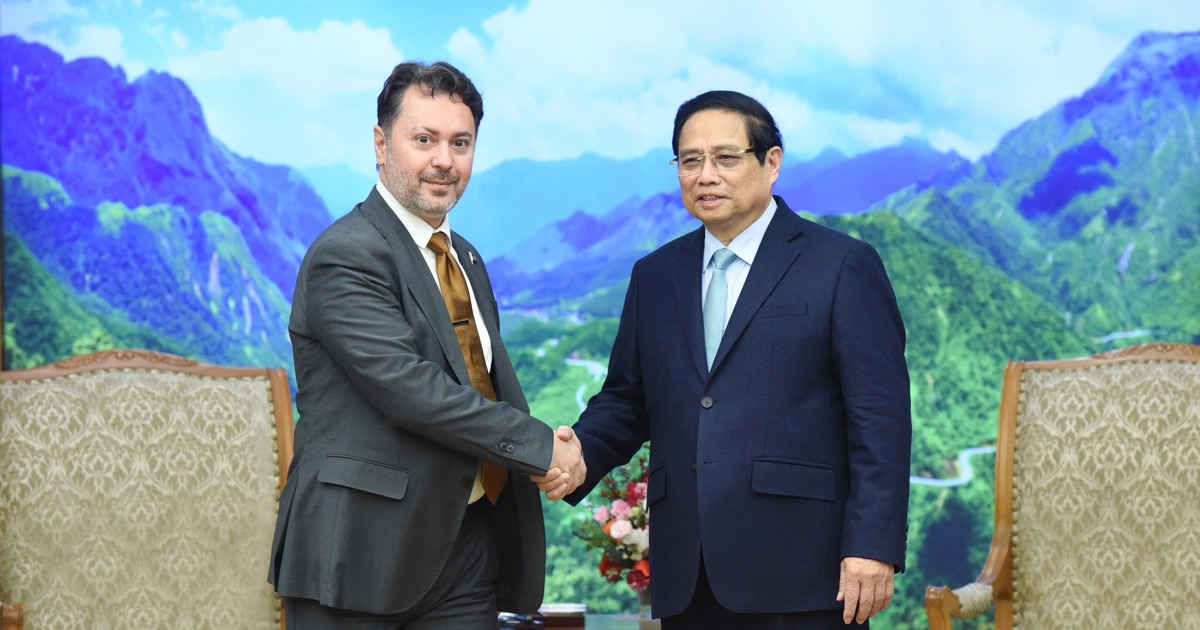

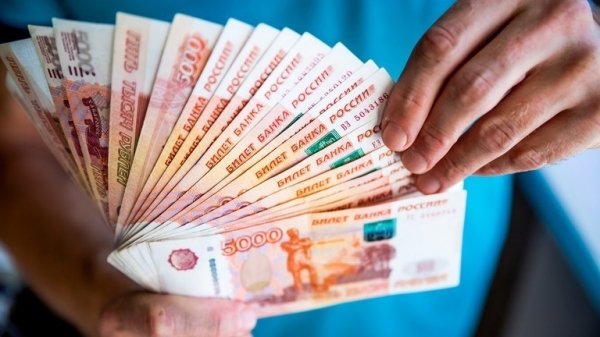
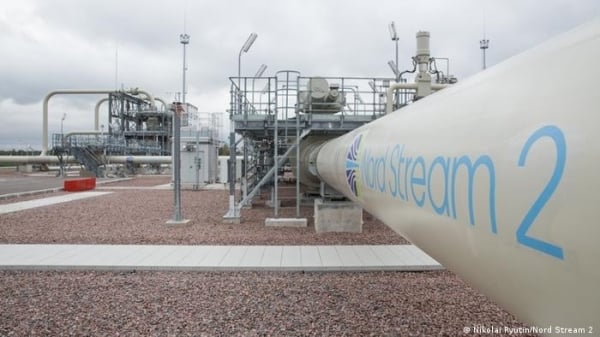
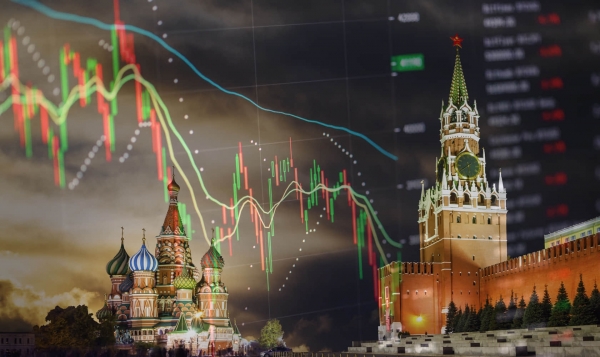
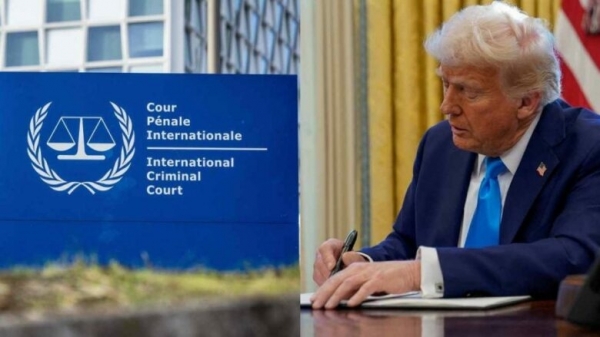
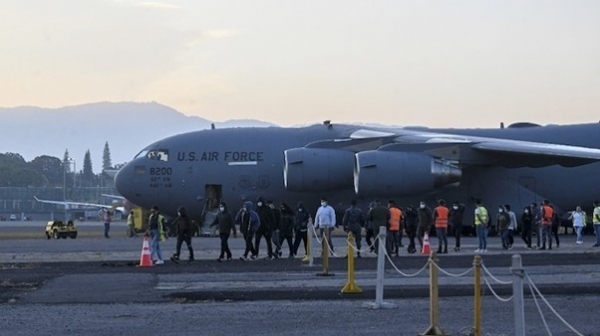
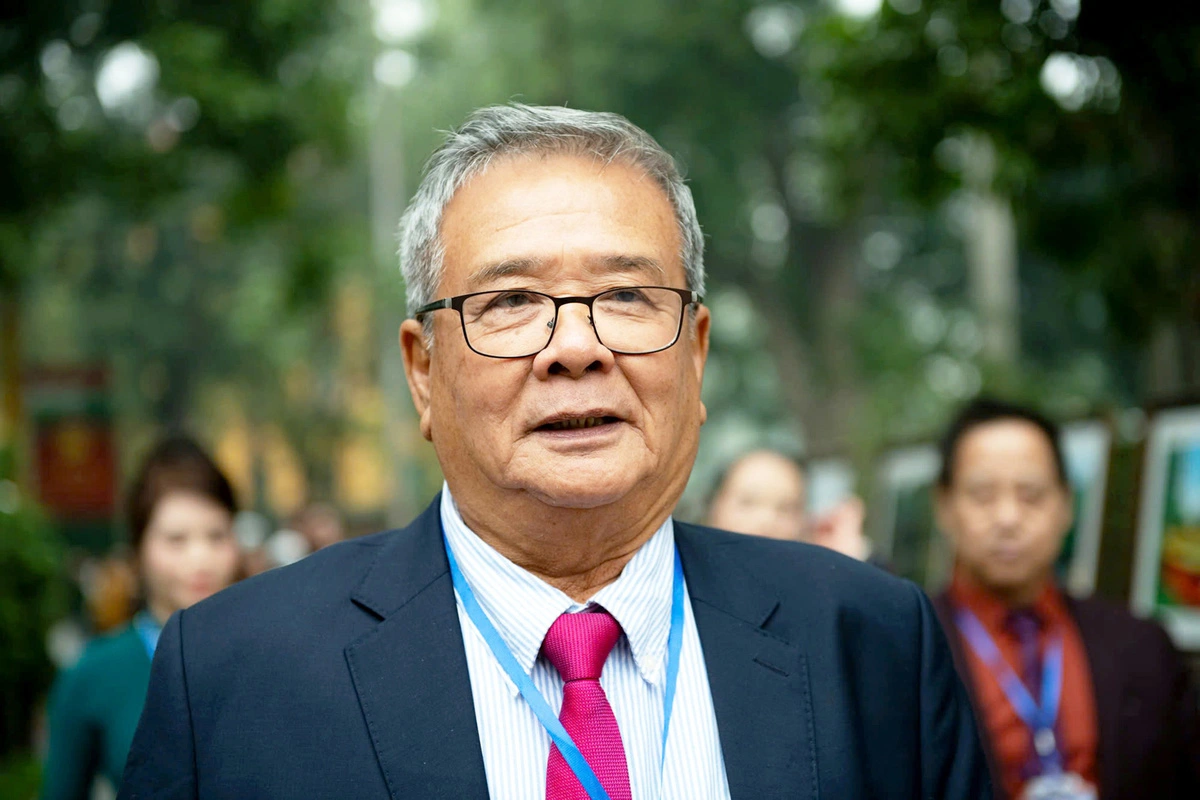





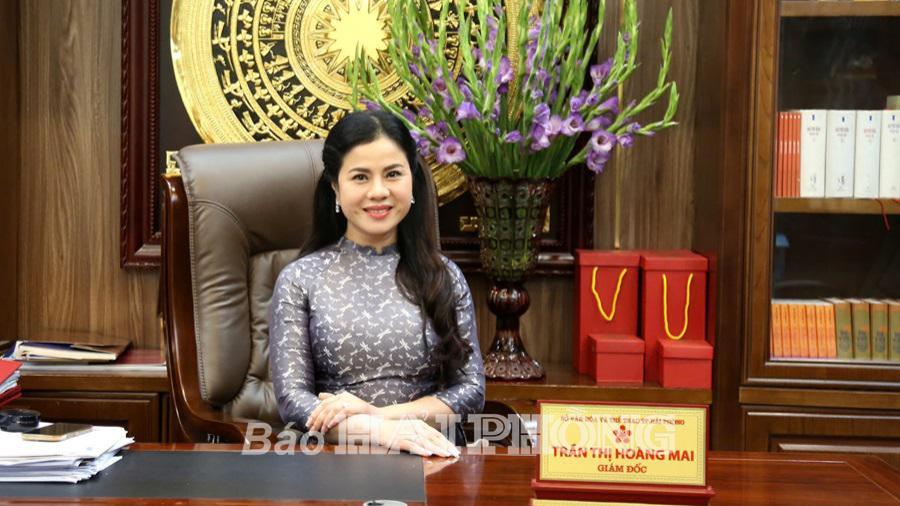

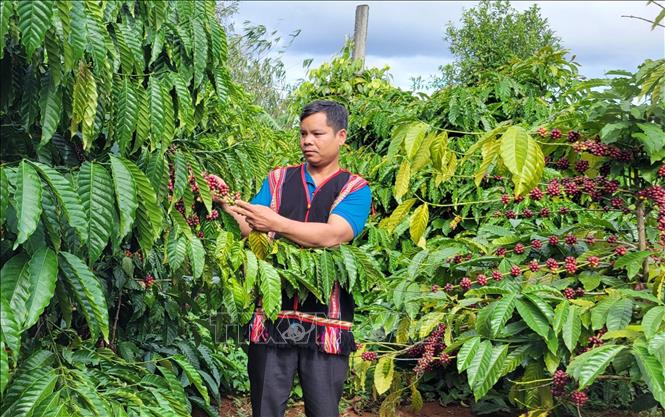





Comment (0)